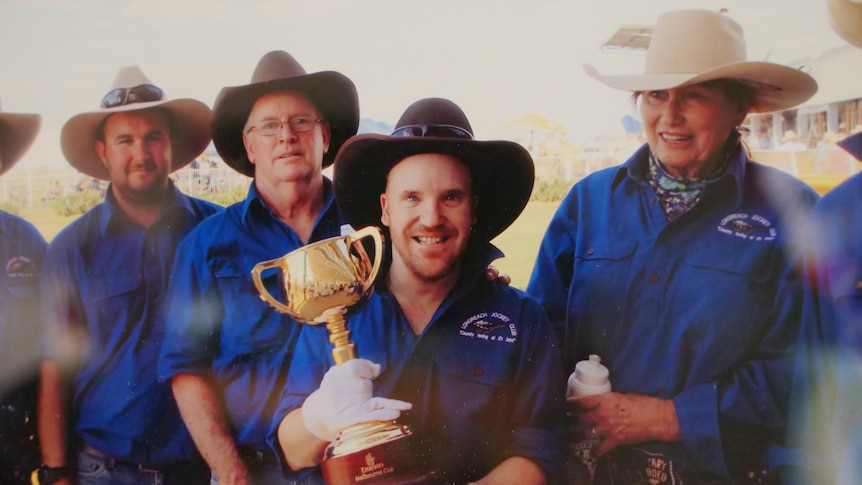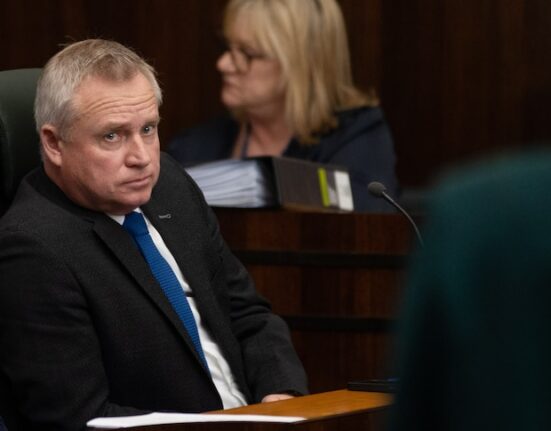Adam Ballard shines as a beacon of positivity in his small outback Queensland town of Longreach. Born with Williams syndrome, an intellectual disability that requires constant care, Adam has become a beloved figure in the community. With a contagious smile, he volunteers at the local jockey club, frequents footy matches, and embraces his passion for rodeos. His family roots run deep in Longreach, spanning generations, providing Adam with a sense of security and belonging.
However, as Adam’s 67-year-old parents confront the inevitable reality of aging, they face the daunting task of planning for Adam’s future care. Like many parents of children with special needs, their greatest concern looms over ensuring Adam’s well-being when they are no longer able to provide direct support. The Ballards are compelled to make a heart-wrenching decision to relocate Adam to Rockhampton, 700 kilometers away, as Longreach’s limited resources and housing options present challenges for long-term care arrangements.
In response to the pressing need for improved disability services in rural areas like Longreach, Adam’s mother, Paula Ballard, established the Outback Independent Living (OIL) group in 2019. OIL aimed to create an inclusive community with specialized housing and support services for individuals with disabilities across multiple outback towns. Despite initial enthusiasm and support from stakeholders, the venture encountered setbacks, primarily stemming from a lack of designated home and living support in NDIS plans.
Expert perspectives shed light on the systemic issues plaguing rural disability care. Kathy Ellem, a disability and social work researcher at the University of Queensland, emphasizes the necessity for tailored solutions that consider the unique challenges of rural areas. She advocates for government intervention in the form of block funding to address the disparities in service provision. Federal NDIS Minister Jenny McAllister echoes this sentiment, highlighting the government’s commitment to bridging service gaps and ensuring equitable access to necessary supports for all NDIS participants, regardless of their geographical location.
Katie Grehan, a passionate advocate for disability rights in rural communities, stresses the importance of individualized support plans that empower individuals to take control of their living arrangements and funding allocations. Grehan’s advocacy work has facilitated NDIS enrollment for numerous individuals in the central west, underscoring the transformative impact of tailored support services.
Beyond housing challenges, Longreach faces a dearth of recreational activities and group programs catering to individuals with disabilities. The absence of community centers and specialized service providers hampers access to enriching activities like dance classes, art programs, and social gatherings. Daisy Walton, a resilient Longreach resident who is visually impaired and autistic, voices the community’s yearning for expanded recreational opportunities and support services tailored to their unique needs.
The disparity between rural and urban disability services is stark, leaving individuals like Daisy and Adam grappling with limited options for social engagement and personal development. Despite the challenges, grassroots efforts and advocacy initiatives like OIL and community-driven support networks offer a glimmer of hope for a more inclusive and supportive future for individuals with disabilities in rural Australia.
As the narrative of Adam and his community unfolds, it becomes evident that the journey towards equitable disability care in remote regions is fraught with obstacles but fueled by resilience and determination. The story of Longreach serves as a poignant reminder of the urgent need for systemic reforms, community collaboration, and unwavering advocacy to ensure that every individual, regardless of their location, has access to the support and resources they need to thrive.









Leave feedback about this